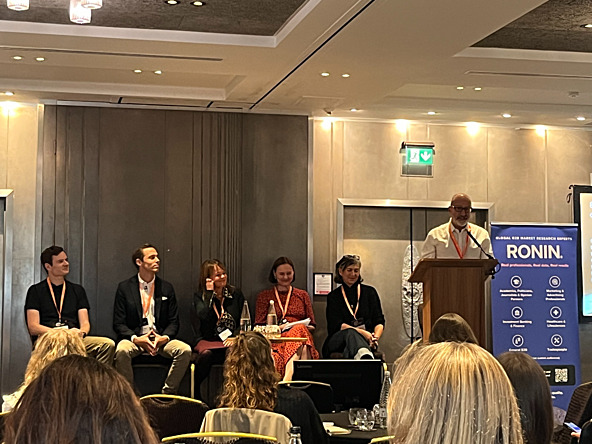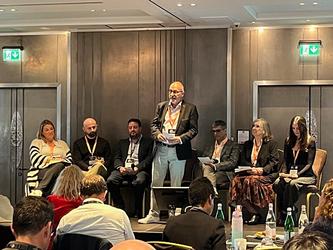Clients should ‘look at all the benefits’ of higher data quality, conference hears

Speaking on a panel chaired by MRS B2B Network chair Stephen Bairfelt focused on solving challenges in B2B recruitment, Eva Oller, director, online research senior consultant, at Ipsos, said that clients needed to be made aware of the trade-offs needed if there was too much focus on cost ahead of quality if research and data.
“I feel like there is a lot of education we keep having to do with clients,” Oller said. “You have to find a cross between quality and cost. If you want cheap and nasty you can.”
Kate Downer, director at Verve, told the panel that there needed to be a strong focus on the participant experience. “It is about improving the experience of recruitment itself,” she said. “I find so often that when you talk to someone in a depth interview, the walls come down so quickly when they realise you are genuine, you want to be there, and you value what they are going to say and they will enjoy talking to you.”
She added that education was needed for clients to show them the benefits of having better quality data, explaining: “Look at all the benefits – look at all the questions you can now ask that you couldn’t ask before, the studies you can run that you couldn’t run before, and the timescales you can work to that you couldn’t work to before.”
Downer also expressed scepticism about the value of synthetic data drawn from open source information on the internet. “It is not what we use, it is not for us – we don’t trust it,” she said, adding that Verve used primary data to build its AI models at Verve, meaning “it is not drawn from mass unknown sub-sources on the internet”.
Max Friberg, chief executive and co-founder at Inex One, said that “context, relevance and simplicity applies to any participant recruitment”.
He added: “Give them [participants] context for why we’re doing the study and what we are trying to achieve, relevance for why it is relevant to them and simplicity [in the design of the project].”
Giulia Baldi, principal at IDR, said that factors that were effective at panel recruitment in B2B included making the research interesting, offering flexibility around timings and using incentives, as well as prior good experiences and word of mouth recommendations.
She added that more work was needed on inclusion in B2B research, with the suggestion that AI could help improve participant recruitment in the future. “I am not sure there is enough done at the research design level,” said Baldi. “That’s where criteria might be set for whom we want to interview.”
Phil Morton, director at Foolproof, said that more clients were building their own panels based on customer data and using research tools as a way around data quality concerns from panels, adding that the view from some clients was that “at least you know they are customers”.
Morton also said that for research around tools that B2B research participants use in their job, the research itself acted as an incentive, as improving how a software or a tool is used is “often as big a thing as the incentive itself”.

We hope you enjoyed this article.
Research Live is published by MRS.
The Market Research Society (MRS) exists to promote and protect the research sector, showcasing how research delivers impact for businesses and government.
Members of MRS enjoy many benefits including tailoured policy guidance, discounts on training and conferences, and access to member-only content.
For example, there's an archive of winning case studies from over a decade of MRS Awards.
Find out more about the benefits of joining MRS here.














0 Comments